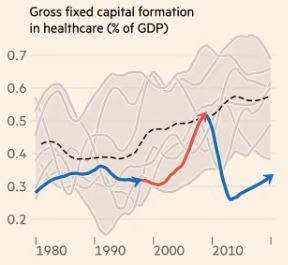I have always found psychological analysis of voting behaviour interesting, but was never sure where it led. So what if research suggests conservatives tend to desire security, predictability and authority more than liberals do, and liberals are more comfortable with novelty, nuance and complexity. These psychological differences may tend to make liberals more concerned about the welfare of minorities or immigrants than conservatives, but that has no bearing on whether it is right or wrong to care about the welfare of minorities.
Where it does matter, however, is in understanding what issues resonate with particular groups. Winning elections is normally presented as persuading undecided or floating voters to vote for a particular party. It is also important for political parties to get their own vote out by either attracting or scaring them. But it may be just as important to persuade the other side’s voters not to vote for their natural party, and instead vote for another party (not necessarily your own) or not vote at all.
A good example of the last point were the claims of antisemitism within the Labour party when Corbyn was leader. Precisely because those with socially liberal views tend to be more concerned about discrimination against minorities, this issue was ideal for peeling off what might otherwise have been natural Labour voters. In this post I want to suggest that the controversy over sewage being continuously released by the privatised water companies into rivers and onto beaches could become a voting deterrent for natural Conservative supporters.
One of the pretty robust findings linking political preferences to psychological traits is that conservative voters react more strongly to what we might call disgusting images or descriptions. As Kathleen McAuliffe describes in the Atlantic, “the brains of liberals and conservatives reacted in wildly different ways to repulsive pictures: Both groups reacted, but different brain networks were stimulated.” High sensitivity to disgust tends to go hand in hand with a “conservative ethos.” Whether this correlation reflects the reaction of disgust in general, or disgust to particular things, is an interesting issue but not relevant in the current context. What the research does seem to suggest is that Conservative voters, or more generally socially conservative voters, may be more affected by stories of sewage pollution than voters of a more liberal persuasion. [1]
Linking the pollution of beaches and rivers (and, after floods, even streets) to the Conservative party is very easy. Those immediately at fault are private water companies, but the privatisation of water has always been championed by the Conservative party as a clear improvement over public ownership. If the news is full of examples of beaches and rivers polluted by these private companies, alongside the usual leaks and occasional gaps in supply, the advantages of privatisation are far from obvious.
Of course just because water companies were privatised does not mean the government is powerless to act. The problem the government has is their actions seem to be more sympathetic to the water companies than the environment. In August 2021 Conservative MPs voted to make the release of sewage by water companies into the environment legal, and gave them until 2050 to completely deal with the problem. The government has also deprived the Environment Agency of the resources and leadership needed to effectively monitor water quality. They, along with previous governments, have sat back while the regulator allowed these companies to pile up debt in order to pay large dividends to shareholders, rather than use an era of low interest rates to invest in the infrastructure needed to avoid pollution.
Natural monopolies like water companies, where there is no competition or customer choice, have little incentive to invest in sewage treatment or fixing leaks. Regulators, without external pressure from politicians, may tend to go easy on firms because, in part, of the problem of revolving doors. One way to avoid this is to give groups who have an interest in better investment a say in what the regulator does. What you don’t do, and what this government has done, is pass legislation that removes what little legal incentive there was for water companies to deal with the problems they have created.
The pollution story also gets to the heart of those claims that Brexit allows the UK to make its own laws and decisions. While we were part of the EU, UK beaches and rivers gradually became cleaner in large part because EU regulations helped that happen. By ‘taking back control’, the UK government has now allowed water companies decades before we might return to standards we achieved whilst in the EU. The reality is that most of the EU regulations Leavers go on about are popular with many Leave voters, just not most Leave politicians and opinion writers.
With the government failing on major issues like managing the economy and the NHS, the problems of pollution of rivers and beaches might seem relatively small beer. Up until now, most of the political noise on this issue has come from interest groups (e.g. river fishing), ad hoc groups or individual campaigners (most noticeably Feargal Sharkey) rather than the main opposition parties. This is not to suggest that Jim McMahon, Labour’s environment spokesman, has been silent on the issue - he hasn’t. Starmer and the Liberal Democrats have also made statements on the issue; see also here. But just as the Conservatives used to get references to antisemitism into almost every statement they made about Labour under Corbyn, perhaps Labour need to do the same about how the government has allowed privatised water companies to pollute our rivers and beaches with sometimes very serious consequences (see also here).
[1] Of course these are tendencies, no more. It certainly does not mean that if you exercised by pollution in rivers or beaches you must be socially conservative!






